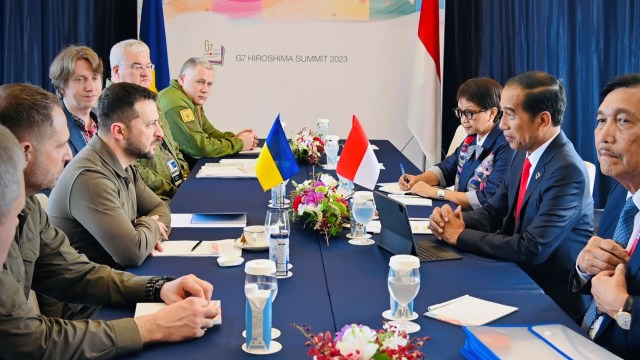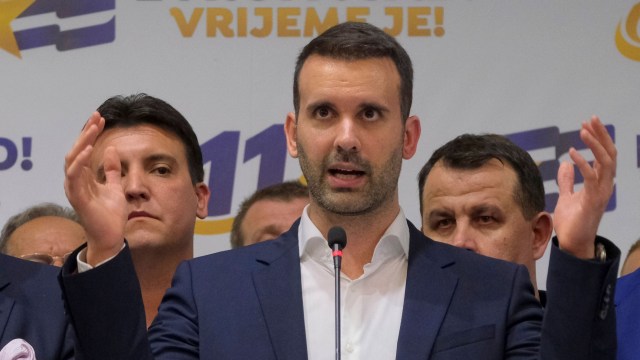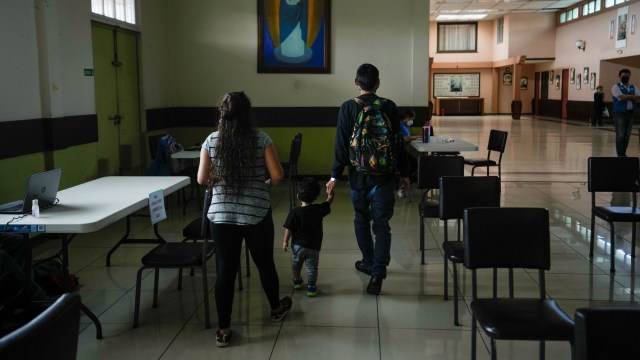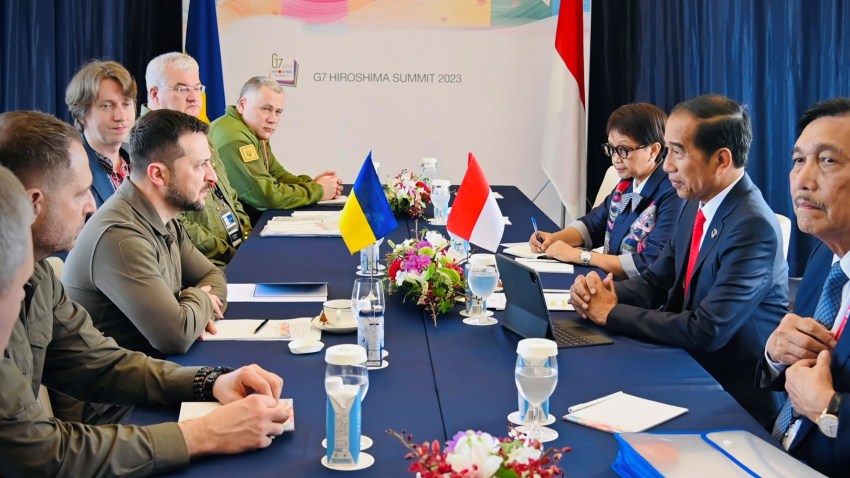Today at WPR, we’re covering Indonesia’s peace plan for the war in Ukraine and the outcome of Montenegro’s elections.
Get the Daily Review sent straight to your inbox every weekday.
First, though, here’s our take on today’s top stories:
U.S.-Iran negotiations: As part of a broader effort to ease tensions with Iran, the Biden administration has been quietly negotiating with the Islamic Republic to limit the country’s nuclear program and free imprisoned Americans. The New York Times reports that the goal of the talks is to reach “an informal, unwritten agreement.”
Our Take: President Joe Biden took office with the goal of reviving the so-called Iran nuclear deal, which the U.S. withdrew from in 2018, initially seeking a “more for more” approach that would broaden the deal’s scope to include Iran’s missile programs and regional behavior.
The impact of deadlocked negotiations and Iran’s support for Russia on the war in Ukraine, however, dashed hopes of a breakthrough, giving rise to talk of a “less for less” deal that would at least roll back some of the advances Iran’s nuclear program has made since 2018. Now, what both sides seem to be arriving at is an agreement that would essentially codify the status quo, in order to mitigate the risks of escalation leading to potential conflict between the two countries.
*****
Migrant boat capsized: Authorities said at least 78 people have died and 104 people have been rescued after a fishing boat believed to have set off from Libya capsized off the coast of Greece. Some 400 people were on board the boat, and survivors estimate that more than 100 children were in the ship’s hold when it sank. (Financial Times)
*****
You can read the rest of today’s News Wire, a curated selection of one must-read article from every region, here.

Earlier this month, Indonesian Defense Minister Prabowo Subianto proposed a plan to end Russia’s war in Ukraine. It was quickly dismissed as unfeasible by Kyiv and many Western commentators.
But even if the plan itself is a nonstarter, writes Samuel Ramani, it reflects Indonesia’s desire to bolster its credentials as both a global diplomatic stakeholder and a prominent voice seeking to mitigate the war’s adverse impact on the Global South.

Indonesia’s Ukraine Peace Plan Makes Sense—for Indonesia
Indonesia’s proposed plan to end Russia’s war in Ukraine reveals a lot about the country’s foreign policy objectives. Read more.
Meanwhile, columnist Frida Ghitis breaks down the outcome of Sunday’s elections in Montenegro, where for the first time in more than 30 years, the country’s dominant political figure wasn’t on the ballot.
The country may have reached a turning point, she writes, but the road to political stability and EU accession still looks rocky.
Montenegro’s Elections Could Close the Book on the Djukanovic Era
Montenegro’s elections on Sunday may be a turning point, but the road to political stability and EU accession isn’t guaranteed. Read more.


We want to hear your take on the issues we cover.
Global refugee crisis: The U.N. refugee agency’s annual report for 2022, which was released today, put the number of people forcibly displaced in the world at 110 million. Of them, 35 million are now refugees, fueling a global refugee crisis to which the countries of the Global North have responded by tightening border controls and limiting access to asylum, in part through third-county resettlement schemes that Matthew Gibney examined in his WPR in-depth article last week.
This week’s question: Should the Global North continue to restrict access to asylum, or should it instead make migration easier?
Just reply to this email to give us your take, along with your name and where you’re based. We’ll include the best ones we receive in the Daily Review over the course of the week. Those selected will also receive a free month of WPR.

Costa Rica and the United States have agreed to open potential legal pathways into the U.S. for Nicaraguan and Venezuelan migrants currently seeking asylum in the Central American country.
The plan appears aimed at reducing the pressure on Costa Rica’s asylum system, which has been overwhelmed by an often overlooked migrant crisis: the roughly 200,000 Nicaraguans who have sought refuge and asylum there in the past five years.
Robert Looney broke down the impact the influx of Nicaraguan asylum-seekers has had on Costa Rica’s economy and politics last month:

Central America’s ‘Forgotten’ Migrant Crisis Has Costa Rica Reeling
May 25, 2023 | While the exodus of millions of Venezuelans from their homeland to countries across the Western Hemisphere has attracted considerable attention in recent years, another equally significant and often overlooked migratory pattern in Central America has been taking place with less notice: Nicaraguans fleeing to Costa Rica. Read more.
That’s a wrap on today’s Daily Review. Be on the lookout for stories on jihadist violence in Benin and the potential consequences for the U.S. of a Russian victory in Ukraine.
Have a great day,
Jakob Cansler
More from WPR
- Alexander Clarkson on Berlusconi’s populist heirs.
- Richard Javad Heydarian on Vietnam’s “multi-alignment” strategy.
- Richard Gowan on the endless quest to reform the U.N. Security Council.
- James G. Dyke on why geoengineering alone isn’t a climate change solution.
Jakob Cansler is WPR’s assistant editor and the author of the Cansler Culture newsletter.

